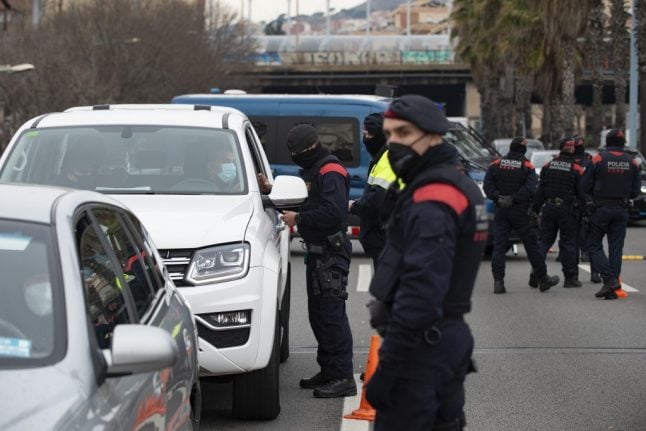The Health Ministry reported 25,438 new infections on Tuesday and added 408 victims to the overall death toll.
The average cumulative incidence rate across Spain has doubled within 22 days from 224.88 cases per 100,000 people over 14 days on December 21st to 454 cases on Tuesday.
The latest data reveals that the number of new cases being admitted into hospitals across Spain have soared by 64 percent since Christmas Eve with those being treated in Intensive Care Units rising by 39 percent.
Datos sobre #COVID19 en España, desde el primer caso inicial, actualizados a hoy martes, 12 de enero:
▶️Confirmados por PCR: 2.137.220
▶️Fallecidos: 52.683Información por CC.AA:https://t.co/apYC60uCOp pic.twitter.com/BirHGOcCob
— Salud Pública (@SaludPublicaEs) January 12, 2021
Health Minister Salvador Illa called the data “very worrying” on Tuesday. “Tough weeks are ahead,” he added, saying that “January will be very complicated.”
While the government has ruled out imposing a national lockdown similar to that seen at the start of the pandemic in March, regional authorities are revising restrictions in an attempt to slow the spread of infections as hospitals near breaking point.
Health authorities in the Basque Country on Wednesday confined residents to within their own municipalities while in La Rioja all non-essential businesses were ordered to close at 5pm and group meetings limited to four people.
Galicia has limited meetings to a maximum of 4 people, banned all non-essential travel in its seven largest cities, told bars and restaurants to close at 4pm and brought the curfew in the northwestern region forward to 10pm.
Navarra has brought forward the curfew from 10pm to 9pm and banned smoking in terraces and outside bars.
Castilla y Leon which has closed its borders until May, has told all its citizens to avoid unnecessary contacts.
Meanwhile, Murcia and the islands of Mallorca and Ibiza now allow only people from the same household to meet.
Andalusia has said it announce stricter new measures on Friday.
For the latest restrictions in each region, check the interactive map produced by Spain's government below:
En el mapa interactivo de @sanidadgob puedes consultar las medidas de contención frente al #COVID19, activas en cada CC.AA.:
?Limitaciones perimetrales
?Restricciones de horarios y grupos sociales
?Boletines oficiales?https://t.co/bAzMxEq0Ew pic.twitter.com/Lp6PHh4F2a
— Salud Pública (@SaludPublicaEs) January 13, 2021
Medics and epidemiology experts across Spain are calling for a new lockdown in a bid to control the new wave of infections.
“We have no other choice but to restrict social interaction and for there to be a confinement for at least two weeks in order to slam on the brakes,” insisted Alberto Infante, professor in international health at Madrid's Escuela Nacional de Sanidad del Instituto Carlos III during an interview with Cadena Ser's 'Hoy por Hoy'.
“The situation is very bad and is getting worse,” warned Daniel López-Acuña, a former director of emergencies at the World Health Organization (WHO) who said that we are only seeing the results of Christmas and New Year infections and have those of Kings’ Day to come. “We are not going to flatten the curve with timid measures,” he told El Pais.
Doctors in Murcia have called for authorities to impose a home confinement of at least two weeks as a “circuit breaker” to tackle the third wave.
“We understand that home confinement is a last resort that entails a deprivation of citizens’ rights that no-one wants,” said an open letter from Murcia’s College of Physicians.
“But the situation is very serious and we have to be aware that the fight against the virus demands the effort and commitment of all to avoid more victims, suffering and the total collapse of our healthcare system.”
READ MORE:
- LATEST: Spain’s coronavirus cases rise again in wake of Christmas gatherings
- ANALYSIS: Could Spain's big freeze help prevent the third coronavirus wave?
- ANALYSIS: How long can Spain avoid another full lockdown?



 Please whitelist us to continue reading.
Please whitelist us to continue reading.
Member comments